
Rubavu: Gateway to Rwanda's Lakeside Serenity
Rubavu, nestled on the shores of Lake Kivu, offers a serene escape for travelers seeking natural beauty and tranquility. This charming city is often referred to as the gateway to Rwanda's lakeside paradise, where the stunning landscapes of the Virunga Mountains meet the gentle waves of one of Africa's Great Lakes. The city is known for its breathtaking views and lush greenery. Visitors can enjoy a leisurely stroll along the lake's promenade, take a dip in its clear waters, or simply relax on the sandy beaches. Rubavu's mild climate makes it an ideal destination year-round, with temperatures that are perfect for outdoor activities. Adventure seekers will find plenty to do in Rubavu. The city is a popular base for gorilla trekking in the nearby Volcanoes National Park. For those who prefer water-based activities, kayaking, and boat trips on Lake Kivu offer a unique perspective of the region's beauty. Rubavu is also home to several hot springs, where visitors can unwind and soak in the therapeutic waters. Cultural enthusiasts will appreciate Rubavu's vibrant local life. The bustling markets are a great place to experience Rwandan culture, sample local cuisine, and purchase handmade crafts. The city also hosts various festivals and events throughout the year, celebrating the rich heritage and traditions of the Rwandan people.
Local tips in Rubavu
- Visit the local markets early in the morning for the freshest produce and unique handmade crafts.
- Take a boat trip on Lake Kivu for a different perspective of the region's natural beauty.
- Pack comfortable walking shoes for exploring the city's scenic trails and promenades.
- Check the schedule for local festivals and events to experience Rubavu's cultural vibrancy.
- Don't miss the chance to relax in the hot springs located just outside the city.
Rubavu: Gateway to Rwanda's Lakeside Serenity
Rubavu, nestled on the shores of Lake Kivu, offers a serene escape for travelers seeking natural beauty and tranquility. This charming city is often referred to as the gateway to Rwanda's lakeside paradise, where the stunning landscapes of the Virunga Mountains meet the gentle waves of one of Africa's Great Lakes. The city is known for its breathtaking views and lush greenery. Visitors can enjoy a leisurely stroll along the lake's promenade, take a dip in its clear waters, or simply relax on the sandy beaches. Rubavu's mild climate makes it an ideal destination year-round, with temperatures that are perfect for outdoor activities. Adventure seekers will find plenty to do in Rubavu. The city is a popular base for gorilla trekking in the nearby Volcanoes National Park. For those who prefer water-based activities, kayaking, and boat trips on Lake Kivu offer a unique perspective of the region's beauty. Rubavu is also home to several hot springs, where visitors can unwind and soak in the therapeutic waters. Cultural enthusiasts will appreciate Rubavu's vibrant local life. The bustling markets are a great place to experience Rwandan culture, sample local cuisine, and purchase handmade crafts. The city also hosts various festivals and events throughout the year, celebrating the rich heritage and traditions of the Rwandan people.
When is the best time to go to Rubavu?
Iconic landmarks you can’t miss
Kigali Genocide Memorial
Explore the Kigali Genocide Memorial, a profound historical site dedicated to remembrance, education, and the enduring spirit of resilience in Rwanda.
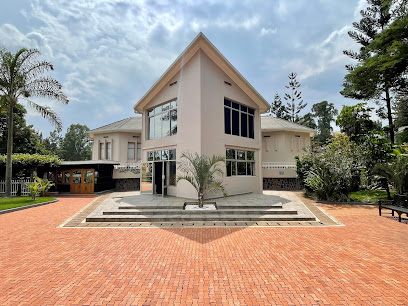
Inema Arts Centre
Discover the vibrant art scene of Kigali at Inema Arts Centre, a hub of creativity and cultural expression showcasing local talent.
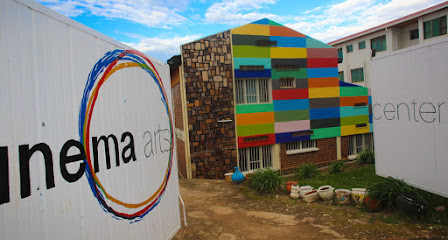
Nyungwe Forest National Park
Discover the breathtaking beauty and biodiversity of Nyungwe Forest National Park, a premier destination for nature lovers and adventure seekers in Rwanda.
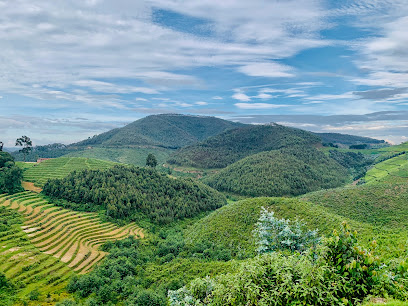
King's Palace Museum
Explore the royal past of Rwanda at the King's Palace Museum, a cultural gem showcasing artifacts and history of the Rwandan monarchy.
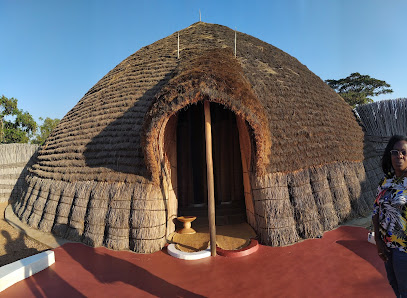
Kandt House Museum
Explore the Kandt House Museum in Kigali for a captivating journey through Rwanda's history, culture, and natural wonders.
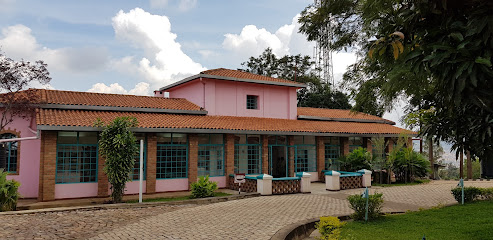
Belgian Peacekeepers Memorial
Explore the Belgian Peacekeepers Memorial in Kigali - a poignant tribute to courage and the enduring quest for peace.
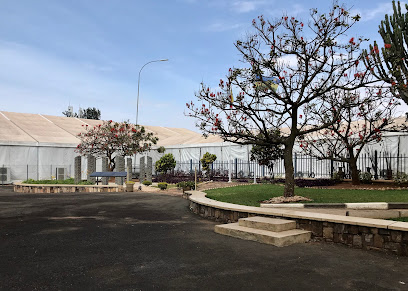
Niyo Arts Gallery
Explore Rwanda's artistic soul at Niyo Arts Gallery, where vibrant art, local culture, and creativity come together in Kigali's premier art destination.
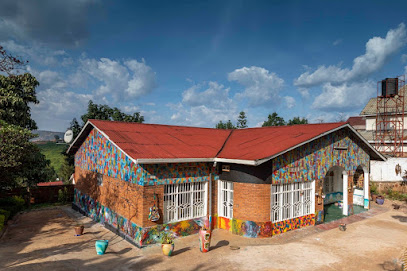
Nyamyumba Hot Springs
Discover the healing waters and breathtaking views at Nyamyumba Hot Springs, a serene escape by Lake Kivu in Rwanda.
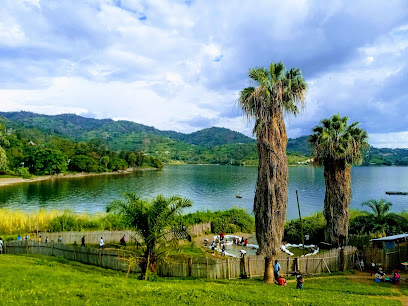
Ellen DeGeneres Campus of the Dian Fossey Gorilla Fund
Explore the Ellen DeGeneres Campus of the Dian Fossey Gorilla Fund, a vital sanctuary for mountain gorillas and a hub for wildlife conservation in Rwanda.
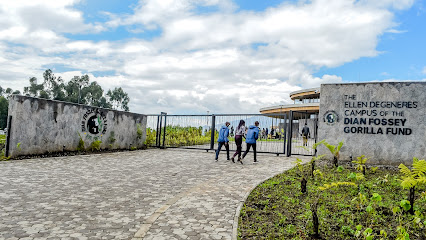
INZU Lodge
Experience the perfect blend of comfort and culture at INZU Lodge, your serene retreat on the shores of Lake Kivu in Gisenyi, Rwanda.

Nyanza Genocide Memorial
Explore the Nyanza Genocide Memorial in Kigali, a poignant tribute to resilience and remembrance, highlighting Rwanda's profound history.
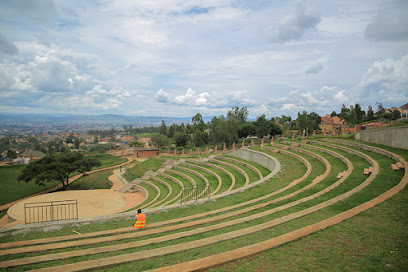
Gishwati-Mukura National Park and Biosphere Reserve
Explore the breathtaking beauty of Gishwati-Mukura National Park, a hidden gem in Rwanda with rich biodiversity and stunning landscapes.
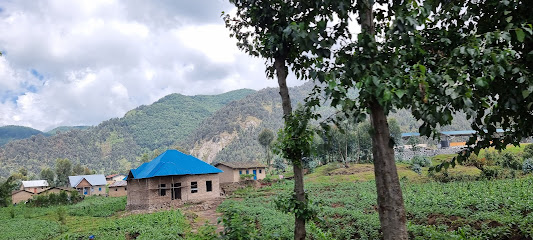
Rond Point Tshukudu/Goma
Explore the vibrant Rond Point Tshukudu in Goma, a historical landmark that showcases the culture and spirit of Congo.
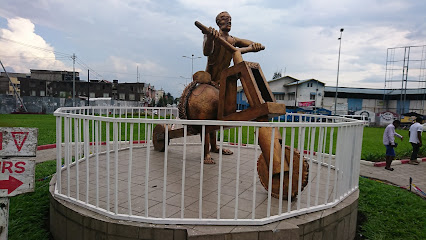
Ntarama Genocide Memorial
Explore the Ntarama Genocide Memorial in Rwanda, a significant site for remembrance and education about the Rwandan genocide and its lasting impact.
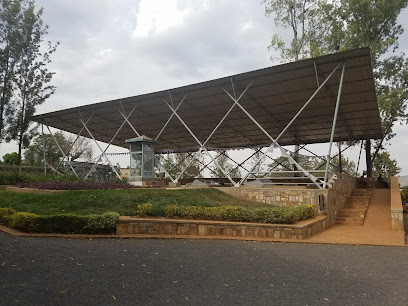
Bennedict Nunnery
Discover peace and serenity at Bennedict Nunnery in Kigufi, a unique hotel blending comfort with the tranquil beauty of Rwanda's landscapes.
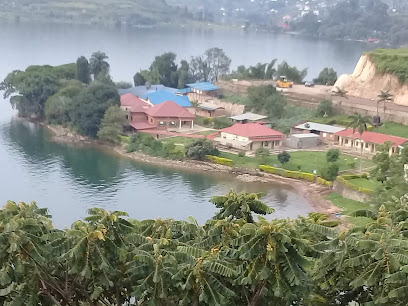
Unmissable attractions to see
Volcanoes National Park
Experience the allure of Volcanoes National Park in Rwanda, where mountain gorillas roam and breathtaking landscapes await every traveler.
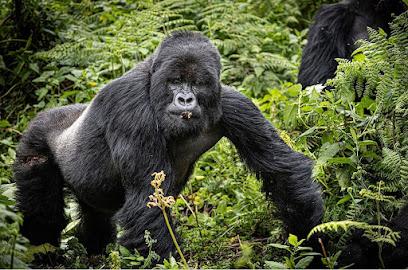
Mt Nyiragongo
Explore the breathtaking landscapes and fiery lava lake of Mt Nyiragongo, an active volcano in the heart of Africa's stunning nature.
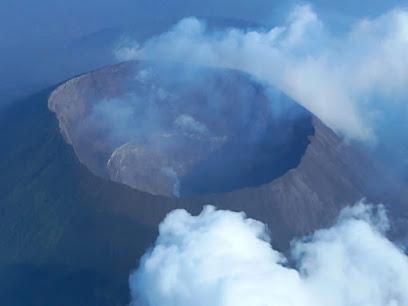
Nyamyumba Hot Springs
Discover the healing waters of Nyamyumba Hot Springs in Rubavu, Rwanda, where relaxation meets stunning natural beauty.
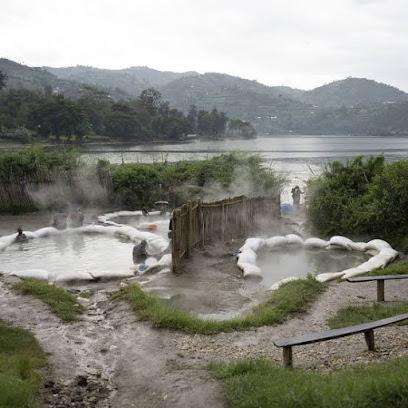
Museum of Environment
Discover Rwanda's rich natural heritage at the Museum of Environment in Kibuye, an educational hub for conservation and biodiversity.
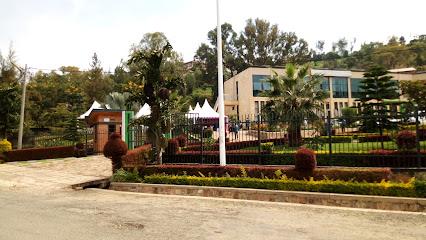
Red Rocks Rwanda
Discover the unique blend of culture and nature at Red Rocks Rwanda, your perfect getaway in the heart of Nyakinama.
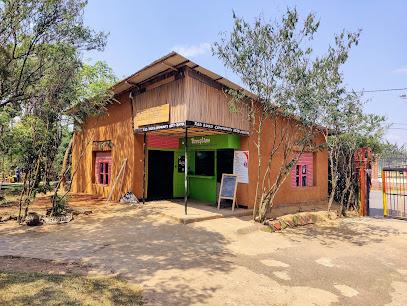
Kibuye Lake kivu boat tours
Experience the stunning beauty and rich culture of Kibuye with unforgettable boat tours on Lake Kivu, surrounded by lush landscapes and vibrant local life.
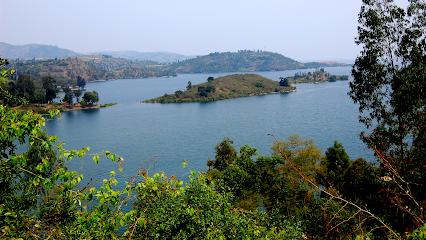
Mount Sabyinyo
Discover the breathtaking beauty and adventure of Mount Sabyinyo, a majestic volcano in Congo-Kinshasa, perfect for wildlife lovers and hiking enthusiasts.
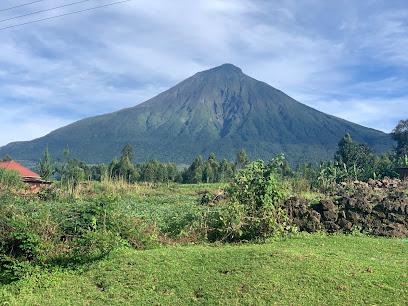
Imbuga City Walk
Discover the tranquility and cultural richness of Imbuga City Walk, a beautiful urban park in Kigali, perfect for relaxation and local mementos.
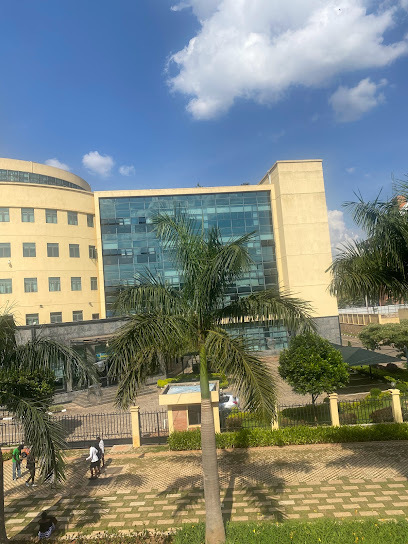
Elisha Tours Rwanda
Explore Kibuye, Rwanda's enchanting lakeside gem, where serene boat tours and vibrant local culture await every traveler.
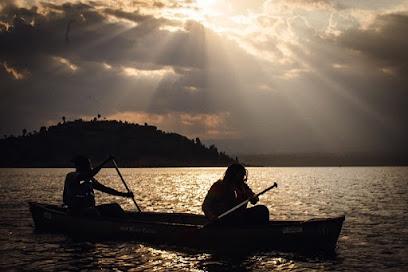
Bisoke Hike Volcanoes National Park
Explore the breathtaking landscapes of Volcanoes National Park with the thrilling Bisoke Hike, a premier destination for nature lovers and adventurers alike.
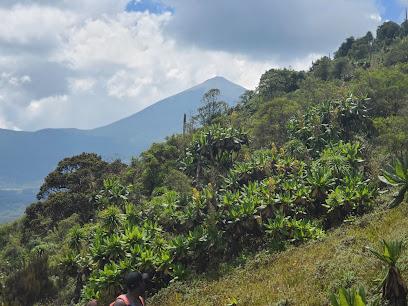
Kinigi Cultural Center
Explore the Kinigi Cultural Center in Ruhengeri for an authentic experience of Rwandan culture, art, and traditions near Volcanoes National Park.
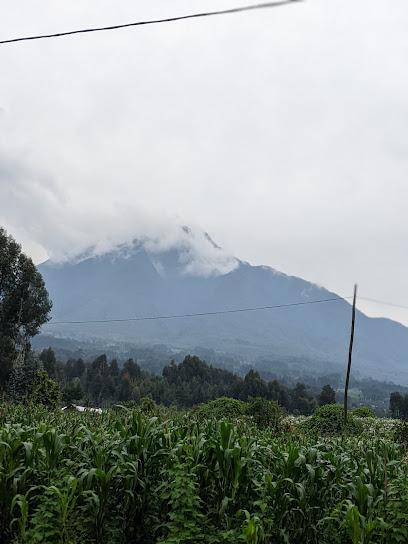
Kiyovu town roundabout
Explore the vibrant atmosphere and local culture at Kiyovu Town Roundabout, the heart of Kigali's bustling life.
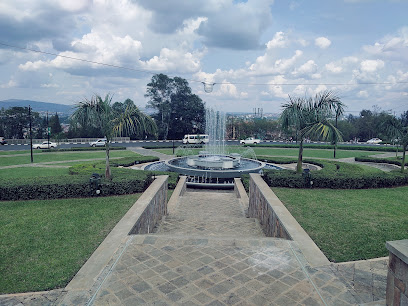
Isaac Water Falls
Experience the serene beauty of Isaac Water Falls in Rwanda, a hidden gem perfect for nature lovers and adventurers alike.
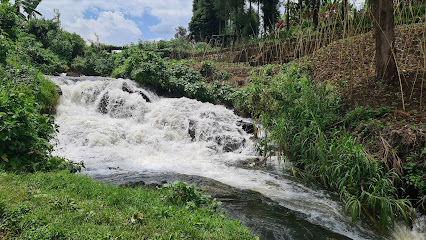
Coffee Tourism by KOPAKAKIDUTEGURE Coffee farmers Cooperative
Discover the heart of Rwandan coffee culture at KOPAKAKIDUTEGURE, where local farmers share their passion and expertise in every cup.
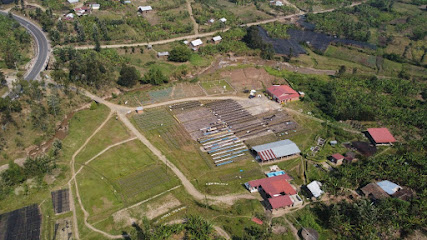
Red Rocks Arts Centre
Explore the artistic heartbeat of Rwanda at Red Rocks Arts Centre, a place where creativity and culture converge in Kinigi's breathtaking landscapes.
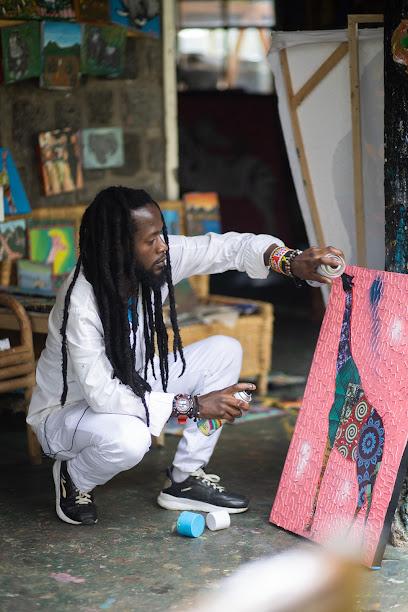
Essential places to dine
Lakeside Bar Beach & Restaurant
Discover culinary delights at Lakeside Bar Beach & Restaurant while enjoying stunning views of Lake Kivu in Gisenyi.
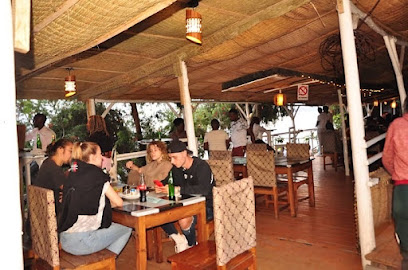
New Tam-Tam Bikini
Discover New Tam-Tam Bikini: A Culinary Delight Blending Local Flavors with International Cuisine in the Heart of Rwanda.
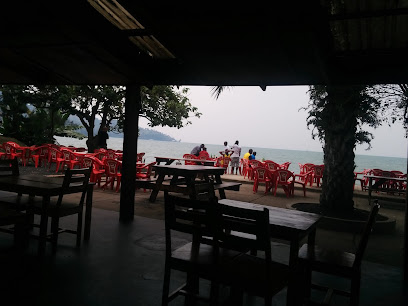
Sagabay Restaurant
Experience the flavors of Rwanda at Sagabay Restaurant in Gisenyi - where culinary excellence meets stunning lake views.
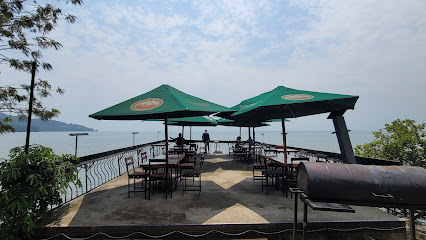
Peace Corner
Discover delicious grilled specialties at Peace Corner in Gisenyi - where every meal is an experience steeped in local flavor.
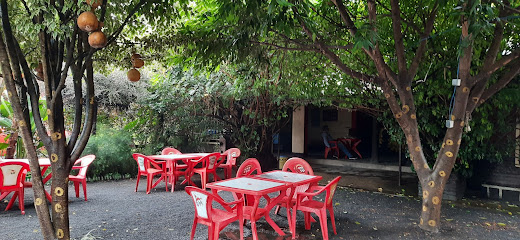
Roxy Bar and Restaurant (anciennement White Rock)
Experience delightful dining at Roxy Bar and Restaurant in Gisenyi, where local flavors meet vibrant nightlife.
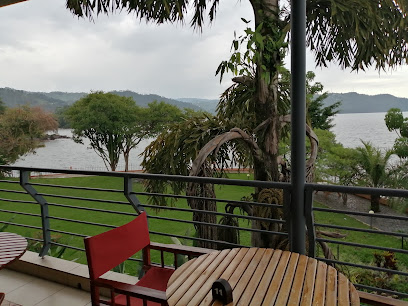
Amaliza Lounge
Discover delightful cuisine and stunning views at Amaliza Lounge in Rubavu - a culinary gem by Lake Kivu.
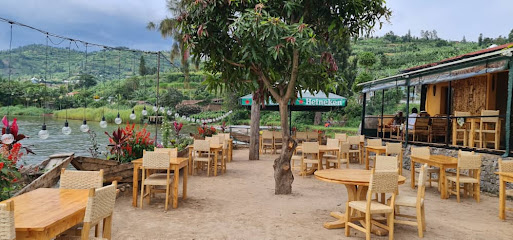
Saba Lounge & Restaurant
Discover culinary bliss at Saba Lounge & Restaurant in Gisenyi – where delicious flavors meet stunning ambiance.
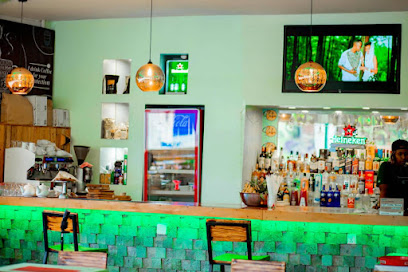
Kivu
Experience exquisite dining at Kivu with breathtaking views of Lake Kivu in Gisenyi – indulge in local flavors and serene landscapes.
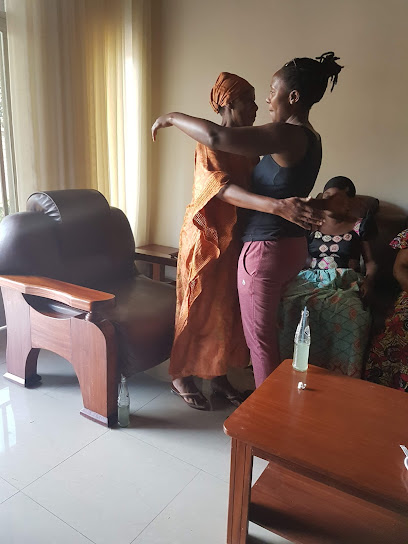
Western Mountain Hotel
Experience authentic Rwandan flavors amidst stunning mountain views at Western Mountain Hotel's renowned restaurant.

AYAT Restaurant Pakistani Indian Halal food
Discover authentic Pakistani and Indian halal cuisine at AYAT Restaurant in Gisenyi, where flavors come alive in every dish.
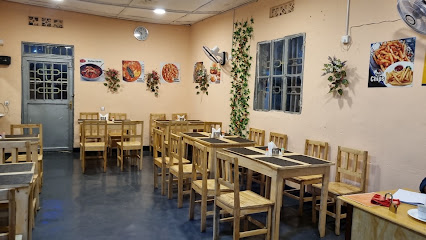
PARIZIA (Quick service delivery restaurant)
Experience the flavors of Rwanda at PARIZIA in Gisenyi – where grilled delights meet local culture.
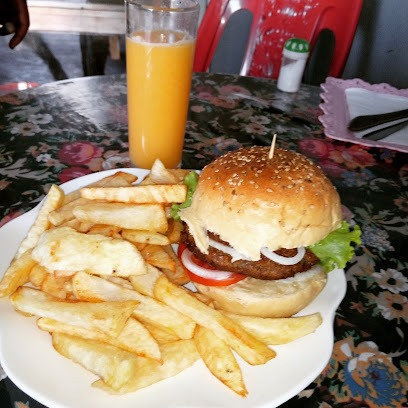
Wazi Wine Garage
Discover the flavors of Rwanda at Wazi Wine Garage – where exquisite cuisine meets an exceptional wine selection in Gisenyi.
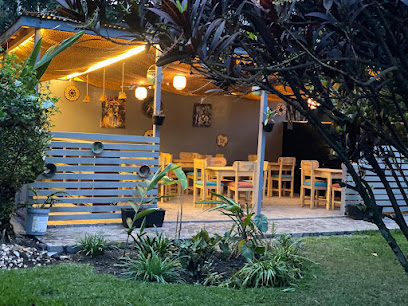
New Bistro Wine Garage
Discover delicious local and international cuisine at New Bistro Wine Garage in Gisenyi - your perfect dining destination.
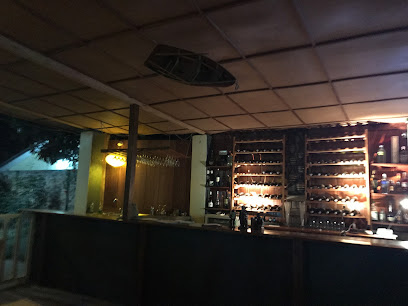
Chez Yves
Experience the best of Rwandan cuisine at Chez Yves in Rubavu – where local flavors meet stunning lake views.
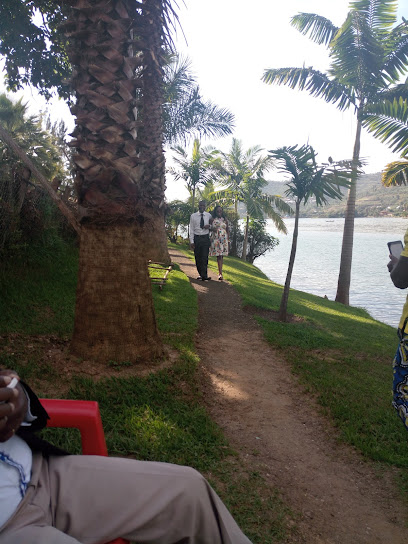
Lakeside View Lounge & Restaurant Gisenyi
Experience exquisite dining at Lakeside View Lounge & Restaurant in Gisenyi, where culinary excellence meets stunning lakeside vistas.
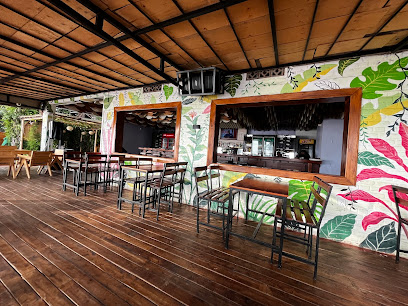
Markets, malls and hidden boutiques
Stand Up Shop
Discover the vibrant Stand Up Shop in Gisenyi, where local crafts meet modern shopping in a lively atmosphere.
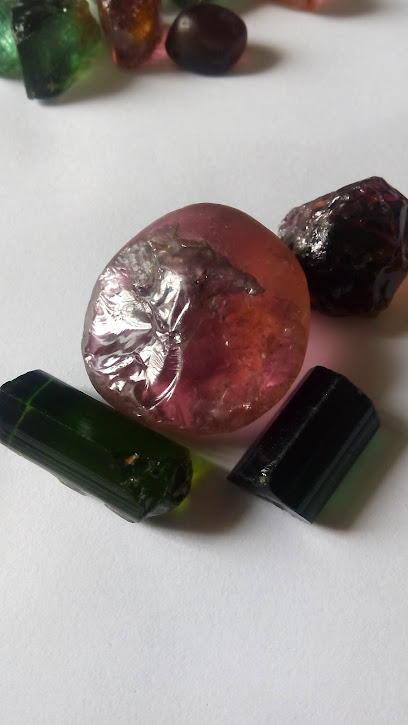
Favorite Shop Ltd.
Explore Gisenyi's Favorite Shop Ltd. for a wonderful selection of local groceries, fresh produce, and unique culinary delights.
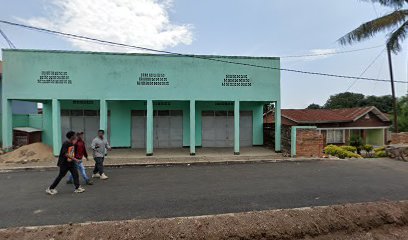
MTN Rubavu Branch
Discover Gisenyi's vibrant shopping scene at MTN Rubavu Branch, where modern amenities meet local culture for an unforgettable experience.
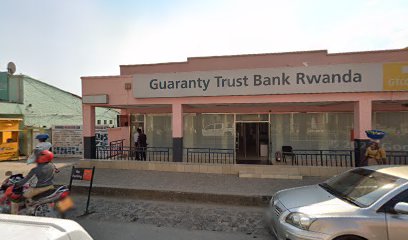
Cyuma Collection
Discover unique clothing and local art at Cyuma Collection, Gisenyi's vibrant hub for stylish apparel and authentic Rwandan craftsmanship.
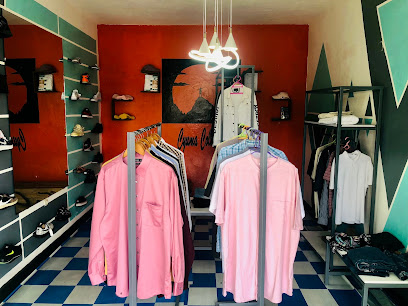
1K CITY SHOP
Explore 1K CITY SHOP in Gisenyi for a diverse selection of trendy clothing, cell phone accessories, and unique gifts in a vibrant shopping atmosphere.
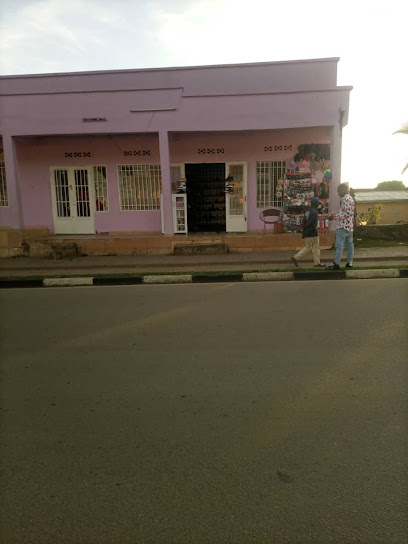
Nizeyimana Store Brook Grivley
Discover the essence of Rwanda at Nizeyimana Store in Rubavu, where local culture and fresh produce meet.
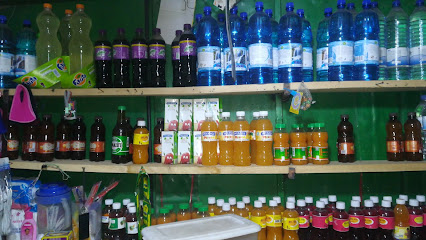
Haral Store
Discover the vibrant flavors of Rwanda at Haral Store, a local grocery store in Gisenyi offering fresh produce and authentic snacks.
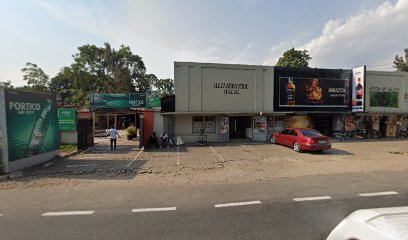
La Luna Store
Explore local fashion at La Luna Store in Gisenyi - a vibrant clothing destination offering unique styles in a welcoming atmosphere.
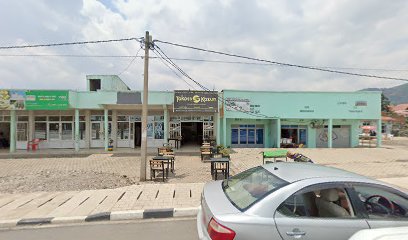
boutique don de dieu chez Manu
Explore the latest electronics at Boutique Don De Dieu Chez Manu, Gisenyi's top destination for tech enthusiasts and tourists alike.
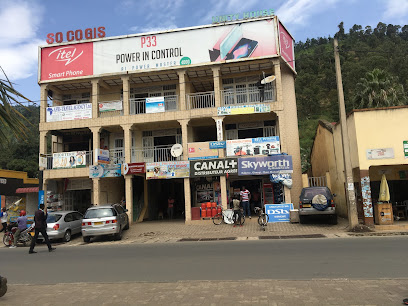
Akagera Marketplace Rubavu
Explore the vibrant flavors of local and international wines at Akagera Marketplace Rubavu, a must-visit for wine enthusiasts in Rwanda.
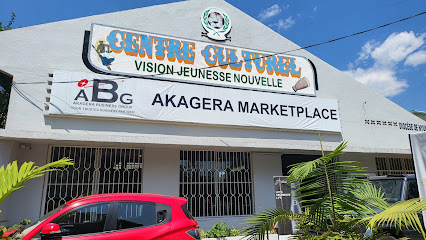
Revolution Music Studio
Explore Revolution Music Studio in Gisenyi, where music comes alive through quality instruments, workshops, and a creative community.
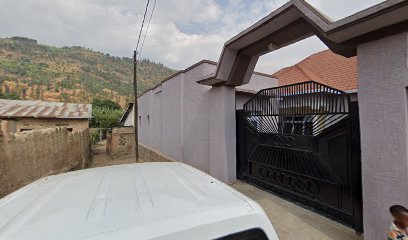
Bijouterie La Confiance
Explore Bijouterie La Confiance in Gisenyi for exquisite handcrafted jewelry and unique souvenirs that embody the vibrant spirit of Rwanda.

Blessing Boutique Rubavu
Explore Blessing Boutique Rubavu in Gisenyi, where local flavors meet international goods in a charming supermarket setting.
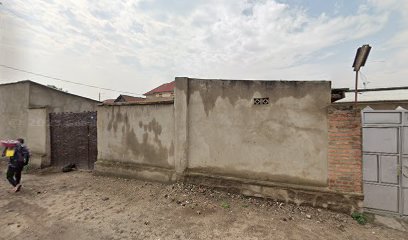
Kwa FAB (riquer store)
Explore Kwa FAB Boutique in Gisenyi for unique Rwandan fashion and handcrafted treasures that capture the essence of local culture.
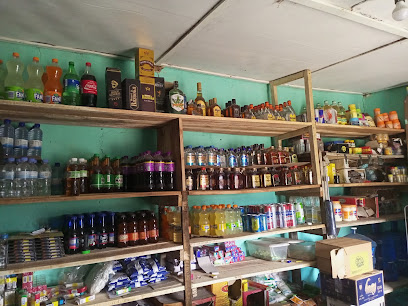
MPAYANA World
Discover authentic home goods and unique crafts at MPAYANA World in Gisenyi, where local artistry meets vibrant shopping experiences.
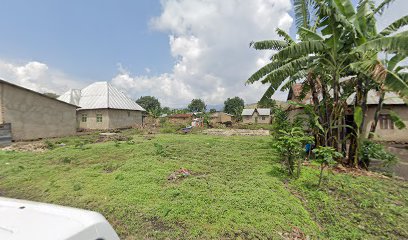
Essential bars & hidden hideouts
Amaliza Lounge
Discover the flavors of Rwanda at Amaliza Lounge in Rubavu, where fresh ingredients meet breathtaking views for an unforgettable dining experience.
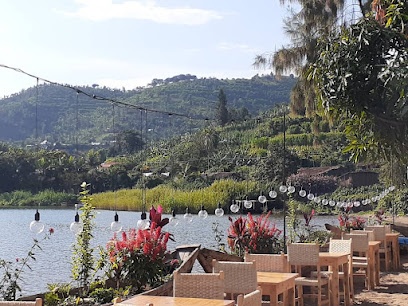
Quointreau Bar
Discover the vibrant spirit of Gisenyi at Quointreau Bar, where eclectic decor meets a lively atmosphere for an unforgettable night out.
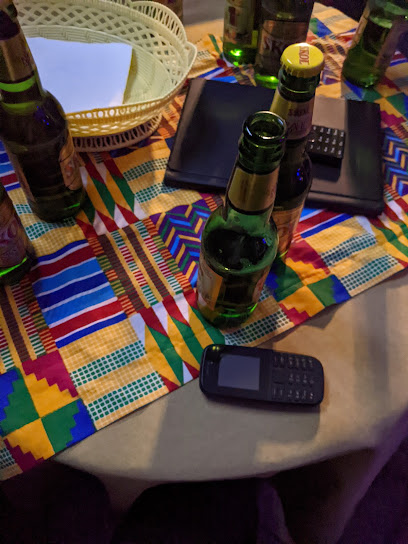
La BAMBA
Discover the vibrant nightlife at La BAMBA, Gisenyi's premier bar offering a blend of local culture, great drinks, and live music.
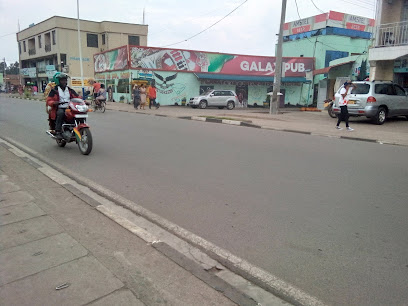
KIVU Rock
Experience the vibrant atmosphere and stunning views of Lake Kivu at KIVU Rock, the perfect bar for relaxation and socialization in Rubavu.
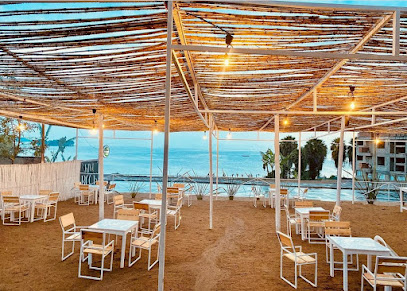
Dhruva baar and restaurant
Discover the vibrant Dhruva Bar and Restaurant in Gisenyi, where local flavors meet a lively atmosphere for an unforgettable dining experience.
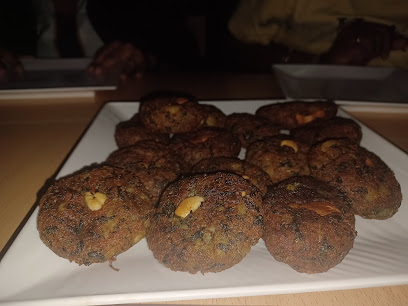
Mia Casa
Experience the vibrant nightlife at Mia Casa, Gisenyi's top pub for refreshing drinks and lively entertainment.
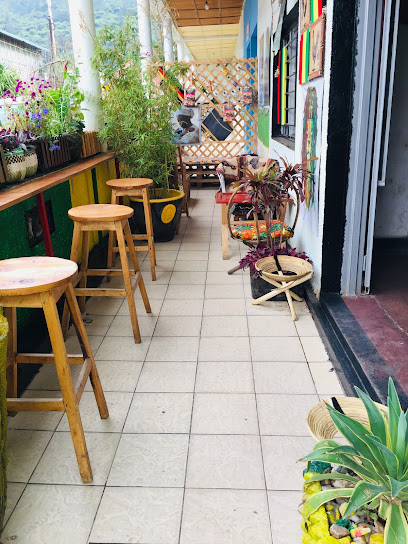
Shinning Bar
Discover the vibrant nightlife of Rubavu at Shinning Bar, where refreshing drinks and a lively atmosphere await you.
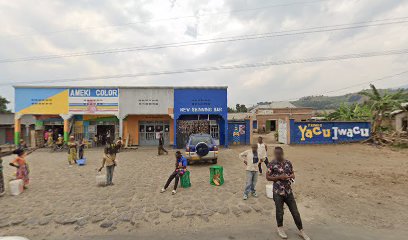
Bar Iriba
Discover the vibrant flavors of Rubavu at Bar Iriba, where grilled delicacies meet a lively atmosphere and local culture.

Erica Bar and Restaurant
Discover the vibrant atmosphere of Erica Bar and Restaurant in Rubavu, where stunning views and refreshing drinks come together for an unforgettable experience.
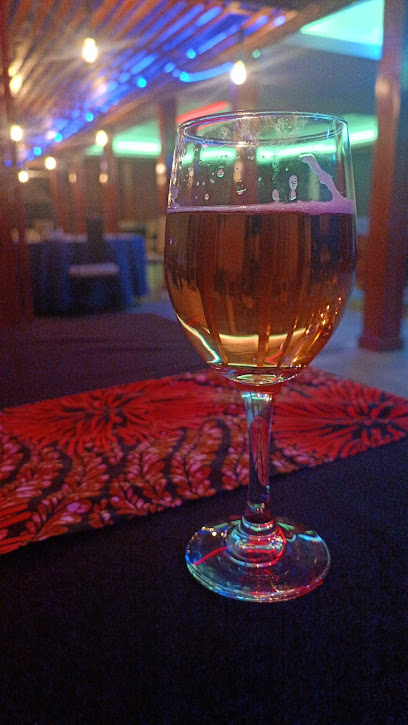
SAWASAWA Bar and restaurant
Discover the vibrant SAWASAWA Bar and Restaurant in Rubavu for a unique blend of local flavors and lively ambiance by Lake Kivu.
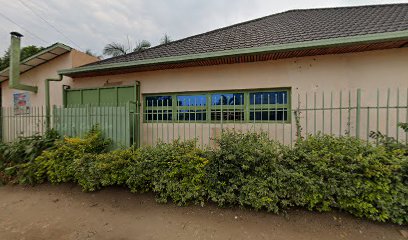
KIBINGO SPECIAL BAR
Experience the vibrant atmosphere and local culture at Kibingo Special Bar, a must-visit spot in Rubavu for drinks and socializing.
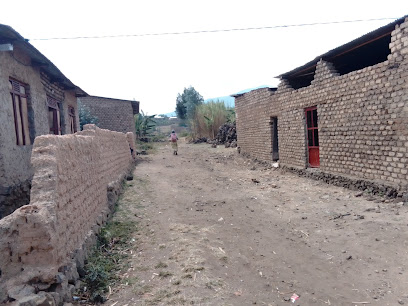
Happy Home
Discover Happy Home, Rubavu's vibrant bar offering local drinks and a lively atmosphere, perfect for socializing and relaxation.
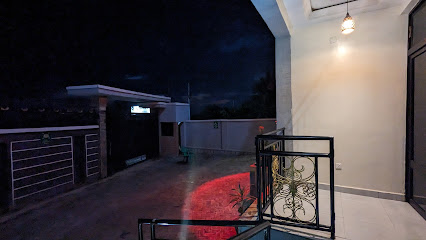
Bar Gacuba
Discover the vibrant atmosphere of Bar Gacuba in Gisenyi, where locals and travelers come together to enjoy refreshing drinks and lively entertainment.
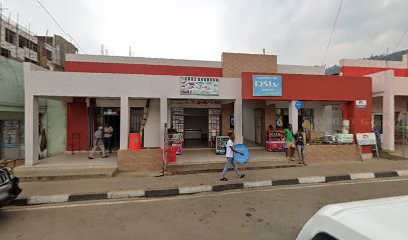
La Ruta Bar Gisenyi Rubavu
Experience the vibrant nightlife at La Ruta Bar Gisenyi, where local flavors and a lively atmosphere create unforgettable nights by Lake Kivu.
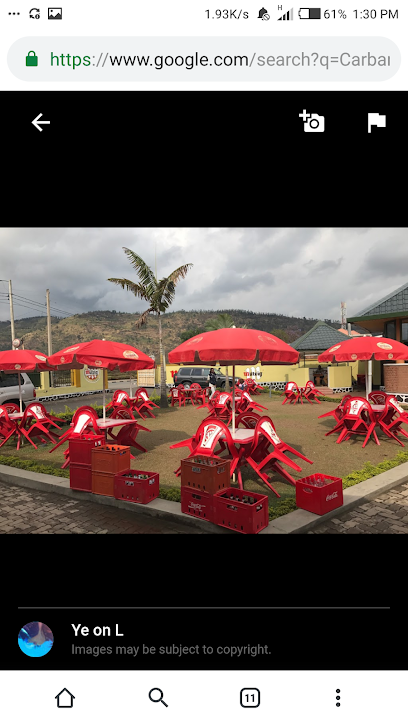
Local Phrases
-
- HelloMuraho
[moo-rah-ho] - GoodbyeMurabeho
[moo-rah-beh-ho] - YesYego
[ye-go] - NoOya
[oy-ah] - Please/You're welcomeKubabarira
[koo-ba-ba-ree-ra] - Thank youMurakoze
[moo-rah-ko-zay] - Excuse me/SorryTubabarire
[too-ba-ba-ree-ray] - How are you?Amakuru?
[ah-mah-koo-roo] - Fine. And you?Ni meza. Wewe?
[nee-meh-zah. way-way] - Do you speak English?Uravuga iki gifaransa?
[oo-rah-voo-gah ee-kee gee-fah-rahn-sah] - I don't understandNtawavuze
[en-tah-wah-voo-zay]
- HelloMuraho
-
- I'd like to see the menu, pleaseNifite ijambo, komeza
[nee-fee-tay ee-jahm-bo, koh-meh-zah] - I don't eat meatSinuka inyama
[see-noo-kah ee-nyah-mah] - Cheers!Amahoro!
[ah-mah-hoh-roh] - I would like to pay, pleaseNifuza kugura, komeza
[nee-foo-zah koo-goo-rah, koh-meh-zah]
- I'd like to see the menu, pleaseNifite ijambo, komeza
-
- Help!Ubutumwa!
[oo-boo-toom-wah] - Go away!Jya kure!
[jah koo-ray] - Call the Police!Sibyumva!
[see-byoom-vah] - Call a doctor!Sibyiruka!
[see-byee-roo-kah] - I'm lostNdi muri maze
[nee moo-ree mah-zay] - I'm illNdi muri gahunda
[nee moo-ree gah-hoon-dah]
- Help!Ubutumwa!
-
- I'd like to buy...Nifuza gukora...
[nee-foo-zah goo-koh-rah] - I'm just lookingNifuza kubyaza
[nee-foo-zah koo-byah-zah] - How much is it?Ni iki cyane?
[nee ee-kee chya-nay] - That's too expensiveIyo ni ya kununua
[ee-yoh nee yah koo-noo-noo-ah] - Can you lower the price?Ukeneye kureba ikibazo?
[oo-kay-nay-yay koo-ray-bah ee-kee-bah-zoh]
- I'd like to buy...Nifuza gukora...
-
- What time is it?Saa ngapi?
[sah ngah-pee] - It's one o'clockNi saa umwe
[nee sah oom-way] - Half past (10)Hamwe n'ibihumbi
[hah-mweh nee-bee-hoom-bee] - MorningIgitondo
[ee-gee-ton-doh] - AfternoonIgihe cya maramara
[ee-gee-hay chyah mah-rah-mah-rah] - EveningIgihe cya saha
[ee-gee-hay chyah sah-hah] - YesterdayEjo
[eh-joh] - TodayEjo
[eh-joh] - TomorrowEjo
[eh-joh] - 1Rimwe
[ree-mweh] - 2Kabiri
[kah-bee-ree] - 3Gatatu
[gah-tah-too] - 4Kane
[kah-nay] - 5Gatanu
[gah-tah-noo] - 6Gatandatu
[gah-tahn-dah-too] - 7Kana
[kah-nah] - 8Umunaane
[oo-moo-nah-nay] - 9Icyenda
[ee-chyen-dah] - 10Igipandu
[ee-gee-pahn-doo]
- What time is it?Saa ngapi?
-
- Where's a/the...?Ese ari he?
[eh-say ah-ree hay] - What's the address?Iyi nimero y'amashuri
[ee-yee nee-meh-roh yah-mah-shoo-ree] - Can you show me (on the map)?Ukeneye kundikira (kuri murugo)?
[oo-kay-nay-yay koon-dee-kee-rah (koo-ree moo-roo-go)] - When's the next (bus)?Igihe cya busi iyo ari he?
[ee-gee-hay chyah boo-see ee-yoh ah-ree hay] - A ticket (to ....)Imibare (kuri ...)
[ee-mee-bah-ray (koo-ree ...)]
- Where's a/the...?Ese ari he?
History of Rubavu
-
Rubavu's history dates back to ancient times when the area was inhabited by the indigenous Batwa people. These early settlers were known for their hunter-gatherer lifestyle and profound connection to the natural environment of the region. Archaeological evidence suggests that the Batwa lived in the forests and hills of Rubavu long before the arrival of other ethnic groups.
-
During the late 19th century, Rwanda became part of German East Africa. Rubavu, then known as Gisenyi under German rule, began to develop as a strategic location due to its proximity to Lake Kivu. The Germans established administrative posts and infrastructure, setting the stage for future growth. The influence of German architecture can still be seen in some of the older buildings in the area.
-
After World War I, Rwanda was placed under Belgian mandate by the League of Nations. The Belgians continued to develop Rubavu, focusing on agriculture and infrastructure. Coffee and tea plantations were established, which played a significant role in the local economy. The Belgians also introduced European-style education and healthcare systems, further transforming the region.
-
Rwanda gained independence from Belgium in 1962, marking a new era for Rubavu. The town continued to grow, benefiting from its scenic location on the shores of Lake Kivu. Tourism became an increasingly important industry as visitors were drawn to the natural beauty of the area. Rubavu's modernization efforts included improvements in transportation, communication, and public services.
-
The 1994 Rwandan Genocide had a profound impact on Rubavu, as it did on the entire country. The area saw significant violence and upheaval during this tragic period. In the aftermath, Rubavu, like the rest of Rwanda, embarked on a journey of reconciliation and rebuilding. Efforts were made to restore infrastructure, promote unity, and foster economic development. Today, Rubavu stands as a testament to Rwanda's resilience and recovery.
-
Rubavu is a melting pot of cultural heritage, with influences from various ethnic groups, including the Hutu, Tutsi, and Twa. Traditional music, dance, and crafts are integral parts of the local culture. Visitors can experience traditional Rwandan performances and purchase hand-made crafts at local markets. The town's cultural festivals and events offer a glimpse into the rich traditions that have been preserved over generations.
-
Rubavu is renowned for its stunning natural landscapes, including the majestic Lake Kivu and the surrounding hills. The town has become a hub for ecotourism, attracting visitors interested in exploring the great outdoors. Activities such as hiking, bird-watching, and boat tours on Lake Kivu provide opportunities to connect with nature. Conservation efforts are in place to protect the region's biodiversity and promote sustainable tourism.
Rubavu Essentials
-
Rubavu is located in the Western Province of Rwanda, on the shores of Lake Kivu. The nearest international airport is Kigali International Airport (KGL), approximately 160 kilometers away. From Kigali, you can take a domestic flight to Rubavu's Rubavu Airport (formerly known as Gisenyi Airport). Alternatively, you can travel by road; the journey takes about 3 to 4 hours by car or bus. Luxury bus services and shared minibuses (matatus) operate between Kigali and Rubavu. For a scenic experience, consider a private car hire along the well-paved roads.
-
Rubavu is a compact city, and many attractions are within walking distance. Local taxis and motorcycle taxis (motos) are readily available and inexpensive. Public buses and minibuses operate within the city and to nearby towns. For a more independent exploration, you can rent a car from local agencies. Bicycles are also a popular mode of transport for locals and can be rented for short trips around the city.
-
The official currency in Rwanda is the Rwandan Franc (RWF). Credit cards are accepted in major hotels, restaurants, and supermarkets, but it is advisable to carry cash for smaller establishments and local markets. ATMs are available in Rubavu, but it is wise to withdraw sufficient cash before traveling to more remote areas. International credit cards are widely accepted, but inform your bank about your travel plans to avoid any issues.
-
Rubavu is generally a safe destination for tourists. However, standard precautions should be taken. Avoid walking alone at night in unfamiliar areas and keep an eye on your belongings in crowded places. While violent crime is rare, petty crimes such as pickpocketing can occur. Specific high-crime neighborhoods targeting tourists are not prevalent, but it is always best to stay vigilant and aware of your surroundings.
-
In case of emergency, dial 112 for immediate assistance. The local police station and medical facilities, including the Rubavu District Hospital, are available in the city. It is recommended to have travel insurance that covers medical emergencies. Pharmacies are available in the town for minor health issues and over-the-counter medications. The US Embassy in Kigali can also provide assistance to American citizens in case of emergencies.
-
Fashion: Do dress modestly, especially when visiting religious sites and rural areas. Avoid wearing overly revealing clothing. Religion: Do respect local customs and traditions. Always remove your shoes when entering a place of worship. Public Transport: Do be respectful and give up your seat to elderly passengers. Don’t eat or drink on public transport. Greetings: Do greet people with a handshake. A slight bow of the head is also a sign of respect. Eating & Drinking: Do try local delicacies and accept food offerings graciously. Don’t refuse hospitality, as it is considered impolite. Avoid excessive public displays of affection.
-
To experience Rubavu like a local, visit the local markets such as the Rubavu Market where you can buy fresh produce and traditional Rwandan goods. Engage with locals, as they are often friendly and willing to share stories about the area's history and culture. Don’t miss a boat tour on Lake Kivu or a visit to the hot springs for a unique experience. For a taste of local nightlife, head to one of the bars or nightclubs in the town, where you can enjoy local music and dance. Participate in Umuganda, a community service activity that takes place on the last Saturday of each month.
Trending Landmark in Rubavu
-
Kigali Genocide Memorial
-
Inema Arts Centre
-
Nyungwe Forest National Park
-
King's Palace Museum
-
Kandt House Museum
-
Belgian Peacekeepers Memorial
-
Niyo Arts Gallery
-
Nyamyumba Hot Springs
-
Ellen DeGeneres Campus of the Dian Fossey Gorilla Fund
-
INZU Lodge
-
Nyanza Genocide Memorial
-
Gishwati-Mukura National Park and Biosphere Reserve
-
Rond Point Tshukudu/Goma
-
Ntarama Genocide Memorial
-
Bennedict Nunnery
Nearby Cities to Rubavu
-
Things To Do in Gisenyi
-
Things To Do in Kibuye
-
Things To Do in Ruhengeri
-
Things To Do in Karongi
-
Things To Do in Muhanga
-
Things To Do in Kigali
-
Things To Do in Nyamata
-
Things To Do in Butare
-
Things To Do in Nyagatare
-
Things To Do in Kirundo
-
Things To Do in Cibitoke
-
Things To Do in Kayanza
-
Things To Do in Ngozi
-
Things To Do in Muyinga
-
Things To Do in Muramvya







